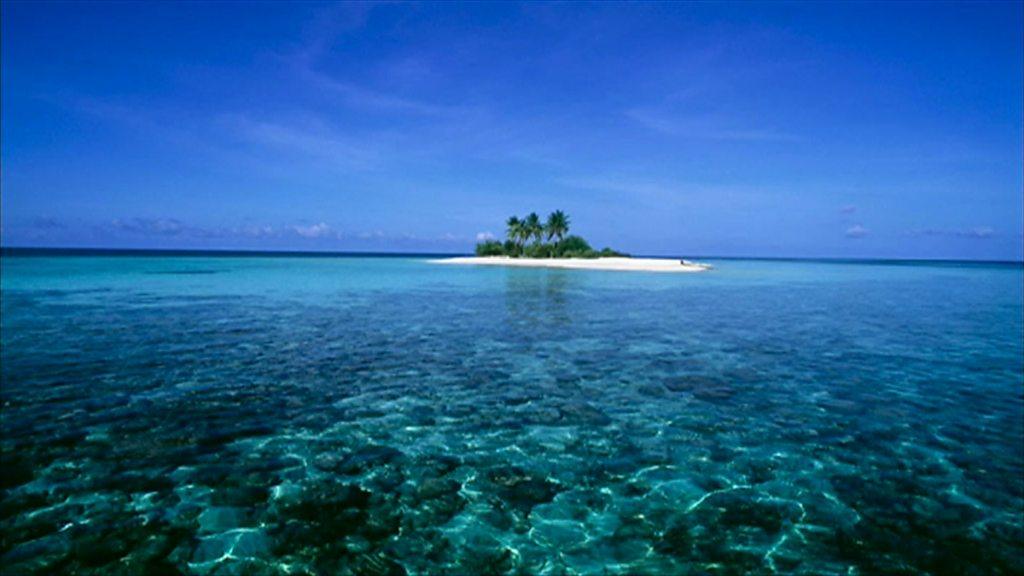Maldives ex-President Nasheed seeks help from India and US
- Published
Trouble in paradise: Maldives crisis explained
The exiled ex-president of the Maldives has called for other countries to intervene in a political crisis engulfing the island nation.
Mohamed Nasheed asked India to help release prisoners and the US to curb leaders' financial transactions.
Turmoil began when current President Abdulla Yameen refused to release political dissidents, defying a court order and sparking protests.
On Tuesday night, the Supreme Court revoked its move to free the prisoners.
Two of its top judges had already been arrested. The remaining three have now issued a statement, saying the order was being rescinded "in light of the concerns raised by the president", according to AFP news agency.
The government has declared a state of emergency, while the opposition has called the arrest of the two judges a "purge".
There has also been international condemnation of the government's moves, with the US expressing concern.
President Yameen gave a televised address to the country on Tuesday, saying judges had been plotting a coup.
"I had to declare a national emergency because there was no other way to investigate these judges," he said.
The Indian Ocean island nation is made up of 26 coral atolls and 1,192 islands, and tourism is a vital part of its economy.

Regional power play
By Olivia Lang, BBC News
Under President Yameen, China has increased its influence in the Maldives as part of its "string of pearls" strategy in the Indian Ocean.
India - which has traditionally viewed itself as the island nation's "big brother" - is not happy.
Delhi is now very much aligned with former President Mohamed Nasheed, who is in exile in Sri Lanka.
Mr Nasheed told me he wanted an Indian official "with enough clout" to go to the Maldives, "backed by the military". But he refused to be drawn on what exactly this meant.
While India is unlikely to take military action, it would not look unfavourably at any move to dislodge Mr Yameen from power.

What did the ex-president say?
Mr Nasheed called on India to put pressure on the Maldives government to release opposition detainees.
He also asked the US to restrict Maldivian leaders' transactions through US banks.
Allow X content?
This article contains content provided by X. We ask for your permission before anything is loaded, as they may be using cookies and other technologies. You may want to read X’s cookie policy, external and privacy policy, external before accepting. To view this content choose ‘accept and continue’.
In a statement, Mr Nasheed added: "President Yameen has illegally declared martial law and overrun the state, external. We must remove him from power."
Mr Nasheed was an opposition leader under a former government and became the country's first democratically elected leader in 2008, but was ousted and jailed in 2012.
A Maldivian minister to the UN, Jeffrey Salim Waheed, called his intervention "treason" and "the single biggest attempt to undermine the Maldives' sovereignty".
How did we get here?
Last week, the Supreme Court ordered the release of a group of opposition politicians. It also ruled that Mr Nasheed's trial, held in 2015, had been unconstitutional.
The country's police commissioner said he would enforce the court's ruling and, in response, the government of President Yameen sacked him.
The army has now been ordered to resist any attempt to impeach or remove President Yameen.
Police arrested Chief Justice Abdulla Saeed and another judge, Ali Hameed, hours after the government declared a state of emergency.
Former President Maumoon Abdul Gayoom, who has allied himself with the opposition, was detained at his home.
Allow X content?
This article contains content provided by X. We ask for your permission before anything is loaded, as they may be using cookies and other technologies. You may want to read X’s cookie policy, external and privacy policy, external before accepting. To view this content choose ‘accept and continue’.
In a video posted online, the ex-president addressed his supporters (in Divehi), external, saying that he had not "done anything to warrant arrest" while urging them to "remain strong".
The state of emergency gives security forces enhanced powers to make arrests, and means public gatherings are banned.
What does this mean for tourists?
The political crisis comes during the country's peak tourism season, when tens of thousands of foreigners visit the Maldives' beaches.
China, the US, India and the UK are among those issuing warnings to travellers in the Maldives.
The UK's Foreign Office said British nationals in the capital, Male, should "exercise caution and avoid any protests or rallies", but that outlying islands and resorts - and the international airport - were not affected.
Tourism was worth $2.7bn (£1.9bn) to the Maldivian economy in 2016. It is the biggest industry in the country - home to just 400,000 people - and could be hit hard if the crisis worsens and puts people off travelling.
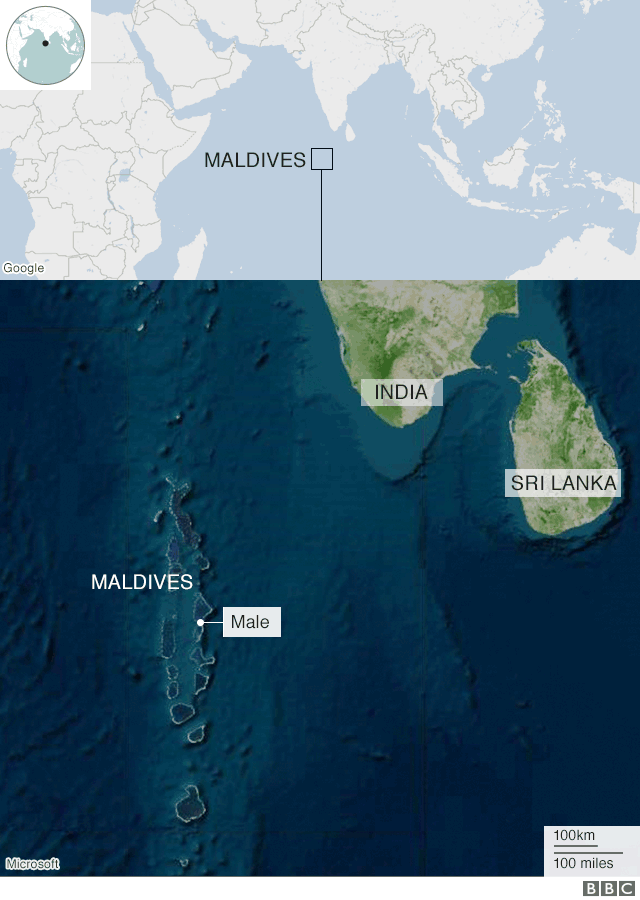
- Published6 February 2018
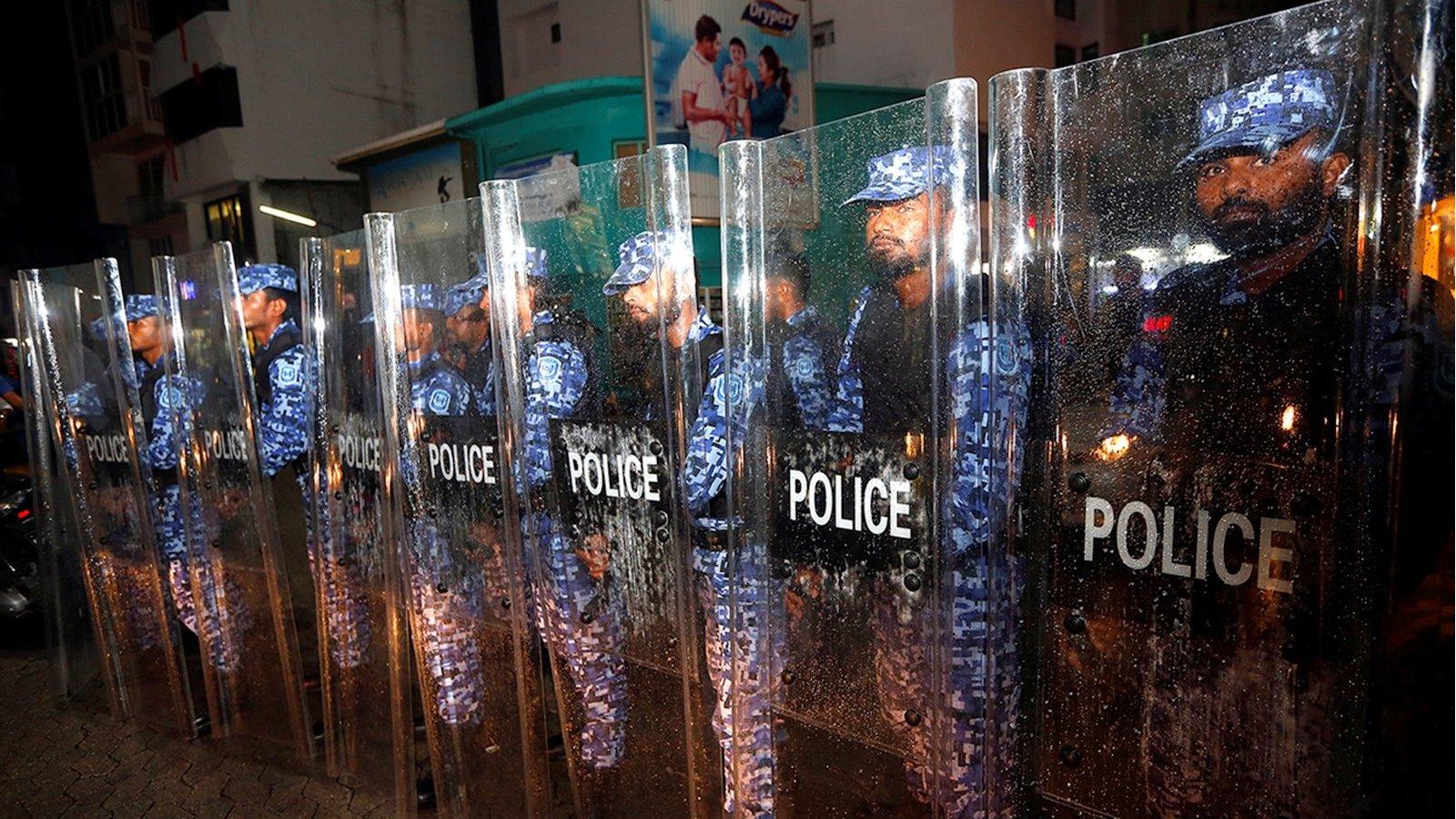
- Published4 February 2018
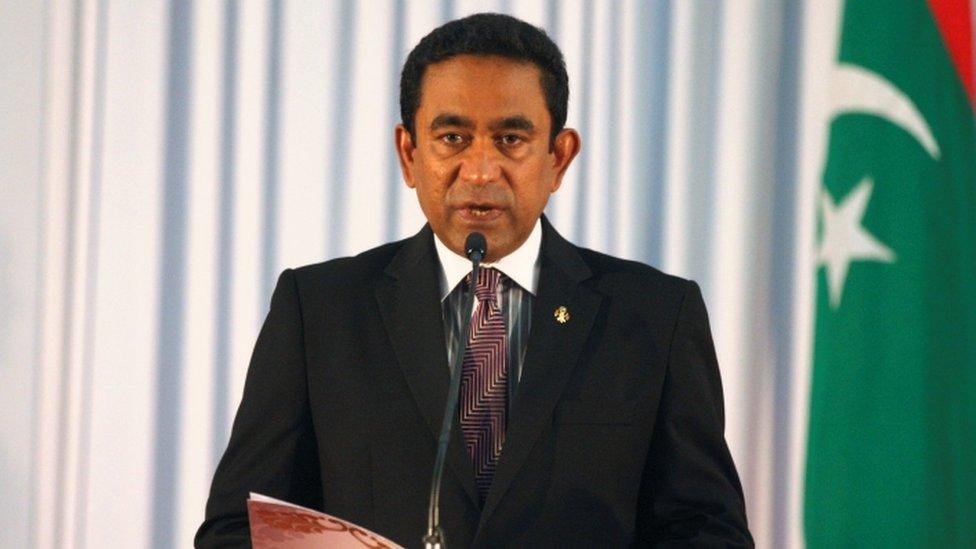
- Published2 February 2018
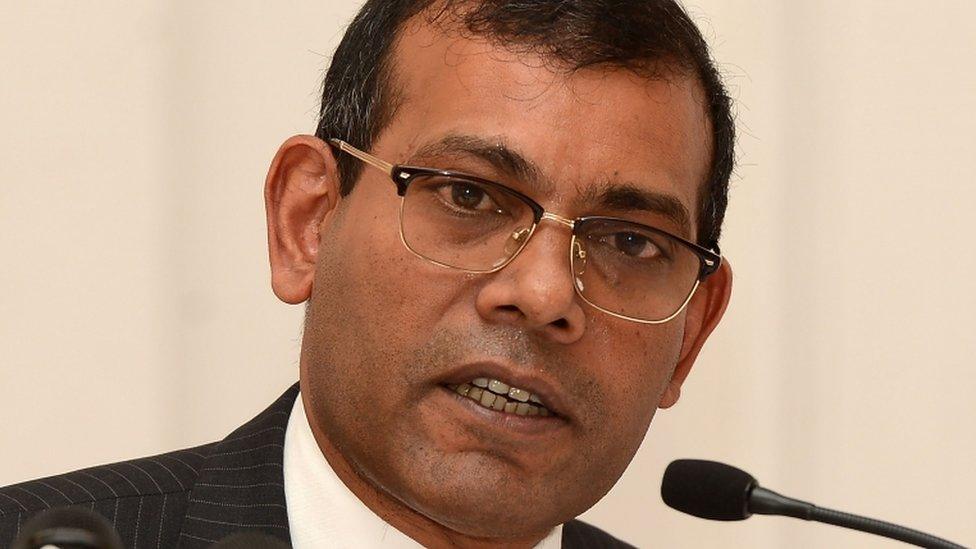
- Published10 August 2017
- Published6 February 2018
